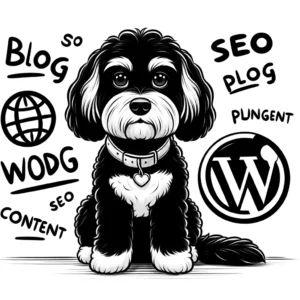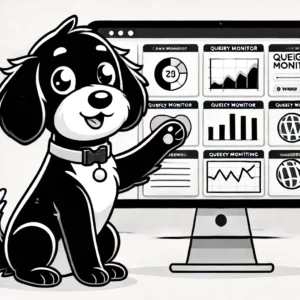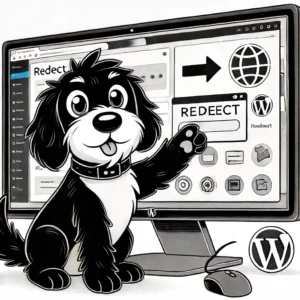Understanding Your WordPress Niche
A WordPress niche represents the specialized segment of a broader market where specific audience interests converge. Within the WordPress ecosystem, defining a niche involves critical introspection and market analyses.
Identifying Your Passion and Interests
A successful WordPress site often aligns with the creator’s passions. One should begin by listing topics they are enthusiastic about. This step ensures sustainability in producing consistent, engaging content. The intro to blogging guide emphasizes choosing a niche close to one’s heart, increasing the likelihood of long-term success.
Conducting Niche Research
Research involves establishing the scope and demand within a niche. Tools like Google Trends can gauge interest over time and identify emerging patterns. Keywords are the bedrock of SEO and require careful consideration during research. They should resonate with the chosen niche and reflect what the intended audience is searching for.
Evaluating Competition and Profitability
One must assess not just the presence of competitors but also the viability of a niche as a profitable one. Questions about market saturation and differentiation should guide this analysis. Tools and services such as SitePoint offer insights into these aspects, assisting bloggers and business owners in making informed decisions about the direction and potential of their WordPress endeavors.
Setting Up Your WordPress Site
Establishing a WordPress site involves several critical steps: selecting a domain name, choosing a hosting provider, installing WordPress with vital plugins, and tailoring themes as well as web design to meet your vision. Each step requires careful consideration to ensure a successful website launch.
Choosing a Domain Name
The domain name serves as the distinct address for your website and is essential in defining your brand’s online presence. When selecting a domain name, make sure it is memorable, concise, and reflects the nature of your business. Services like WordPress.com offer domain registration, facilitating a seamless setup process.
Selecting the Right Hosting Provider
A reliable hosting provider is the cornerstone of your website’s performance and security. Consider the balance between cost, customer service, uptime guarantees, and scalability. Providers like Bluehost are recommended by WordPress.org and provide easy, one-click WordPress installations.
Installing WordPress and Essential Plugins
Once hosting is secured, install WordPress through your hosting provider’s dashboard. Essential plugins extend the functionality of your site, offering features like search engine optimization (SEO), social media integration, and enhanced security. It’s important only to use trusted plugins available from reputable sources.
Customizing Themes and Web Design
Personalize your site by selecting a WordPress theme that aligns with your desired look and feel. Pay attention to colors and web design elements, which should resonate with your brand identity. Access a wide range of customization options through the WordPress dashboard, including website builders and theme customization tools, to tailor your site’s aesthetic and user experience.
Remember to periodically back up your website and keep your WordPress version and plugins up to date to maintain optimal performance and security.
Creating Content and Engaging Your Audience
Creating engaging content tailored for a specific audience lies at the heart of a successful WordPress site. Strategically developed content matched with well-executed SEO and distribution through social media and email marketing are foundational in driving traffic and ensuring active engagement.
Developing a Content Creation Strategy
A robust content creation strategy starts with understanding the target audience and aligns closely with their interests and needs. It involves defining a content plan tailored to this audience, often including conducting keyword research to become discoverable on search engines. Each piece of content should provide value, whether that’s through informative blog posts, how-to guides, or industry insights.
Optimizing for SEO and Search Engines
SEO is critical in making content visible and driving traffic from search engines. Optimization includes using relevant keywords throughout the content and titles, ensuring the site has a fast loading speed, and having a clean, responsive design. Regularly updated, high-quality content is favored not only by the audience but also by search engines, increasing the site’s visibility and ranking.
Leveraging Social Media and Email Marketing
Social media platforms are powerful tools for boosting engagement and directing followers to the WordPress site. Sharing content on social media should be strategic; it’s important to understand where the audience spends their time and tailor content for those specific channels. An email list serves as a direct line to readers, offering opportunities for personalized engagement and updates that keep the audience informed and involved.
Monetizing Your WordPress Niche Site
Creating a niche WordPress site can be profitable if monetization strategies are carefully implemented. Focusing on strategies that align with your niche will effectively engage your community and turn your WordPress platform into a fruitful income source.
Exploring Monetization Strategies
Monetization involves turning website traffic into revenue. Businesses must tailor their approaches to their target audience to generate sustainable income. By establishing a strong online marketing presence and providing value to customers, they can maximize the profitability of their WordPress site.
Affiliate Marketing and Advertising Networks
Affiliate marketing is a common method for niche site owners looking to earn passive income. They can promote affiliate products that resonate with their audience. Additionally, incorporating advertising networks can lead to revenue from ad placements without distracting from the site’s core content.
Selling Digital Products and Services
Niche sites can expand monetization by selling digital products like e-books, courses, and software. Additionally, they can offer services that pertain to their niche. For sites powered by WooCommerce, their platform becomes a marketplace directly tailored to their customers’ needs, opening opportunities for specialized and profitable e-commerce transactions.
Maintaining and Growing Your Online Presence
Maintaining and growing an online presence through a WordPress site involves diligently tracking user engagement, regular updates to the platform, and establishing a reputation as a trustworthy authority within a specific niche. These efforts help bloggers and online businesses connect with their audience, provide valuable services, and potentially monetize their presence effectively.
Analyzing Traffic and User Engagement with Analytics
To ensure a website’s growth, understanding the audience is paramount. Utilizing tools like Google Analytics allows website owners to track visitors’ behaviors, gauge which content resonates most, and fine-tune their strategy based on data-driven insights. Regular reviews of analytics data help adjust the publishing schedule, improve the user experience, and identify successful blogging topics that encourage readers to return.
Keeping Your WordPress Site Updated
An updated WordPress site secures it from vulnerabilities and ensures that the services provided remain compatible with the latest web standards. Updates include core WordPress installation, themes, and plugins. This maintenance is critical for security and improving functionality and delivering a seamless experience, which contributes to the site becoming an essential online resource.
Building Trust and Authority in Your Niche
Building trust and authority involves consistently delivering high-quality content, bolstering expertise through informative articles and insightful stories, and engaging with the community via blogging. It also requires soliciting reviews and testimonials that new visitors will see, which helps establish a trustworthiness essential for anyone looking to make money online. A successful blogger often stands out by becoming a go-to expert in their niche.












